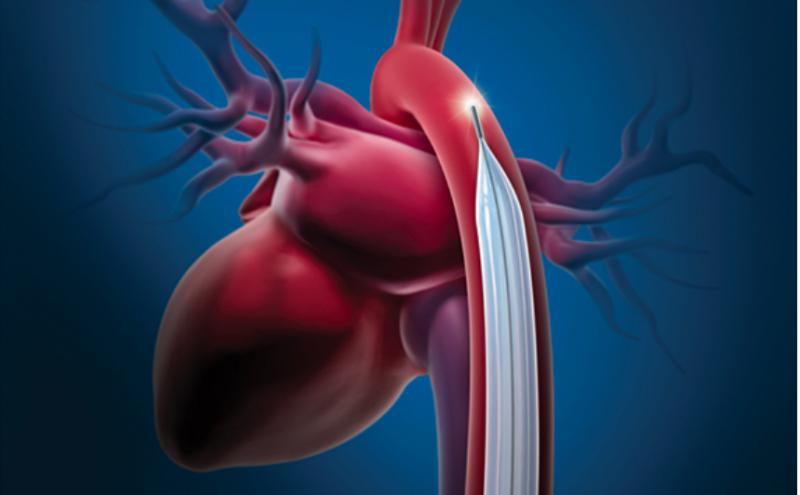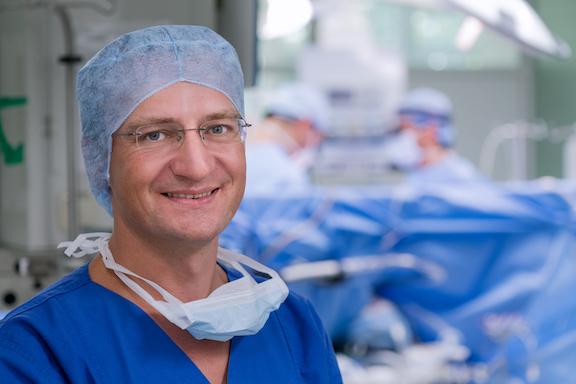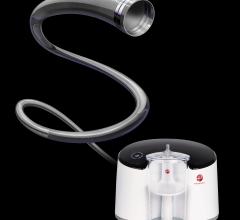The loss of a single gene two to three million years ago in our ancestors may have resulted in a heightened risk of cardiovascular disease in all humans as a species, according to new research. Loss of the gene may have also set up a further risk for red meat-eating humans. The findings were published July 22, 2019 in Proceedings of the National Academy of Sciences (PNAS).
Significantly more patients suffer cardiac arrests in U.S. hospitals each year than previously estimated, according to new research in Circulation: Cardiovascular Quality and Outcomes, an American Heart Association journal.
Mark Ibrahim, M.D., FACC, assistant professor of medicine and radiology, associate program director, advanced cardiac ...
Providing exceptional cardiovascular care for patients to achieve the best possible outcomes is the number one goal for ...
Andrew Choi, M.D., FACC, FSCCT, co-director, cardiac CT and MRI, assistant professor of medicine and radiology, George ...
A highly competitive $4.5 million grant from the National Institutes of Health (NIH) National Heart, Lung and Blood Institute (NHLBI) will support Keck School of Medicine of USC efforts to recruit patients from underrepresented populations into cardiac surgery clinical trials. The seven-year grant funds the Keck School’s ongoing research contributions to the Cardiothoracic Surgical Trials Network (CTSN), the formal NIH infrastructure for conducting major clinical trials in cardiac surgery. The grant also establishes an implementation science training program to address the critical need to develop methods to translate clinical research findings into clinical practice.
A new article published in AACN Advanced Critical Care outlines the traditional anticoagulant therapies familiar to most critical care providers as well as newer medications introduced in recent years. “Anticoagulant Medications for the Prevention and Treatment of Thromboembolism” will help nurses and other advanced practice providers to stay current on the latest research and evidence-based practice related to patients with hematologic and oncologic disorders, as these specialties continually evolve.
Cardiac positron emission tomography (PET) is growing in popularity among cardiologists because it provides the ability ...

Intelligent software solutions (aka deep learning, artifical intelligence, AI, machine learning), this seems to be ...
Penumbra announced U.S. commercial availability of the Penumbra System’s most advanced technology, the Penumbra Jet 7 Reperfusion Catheter with Xtra Flex technology, at the Society of NeuroInterventional Surgery (SNIS) 16th Annual Meeting, July 22-25 in Miami. Penumbra Jet 7 with Xtra Flex technology is used with the Penumbra Engine in the fully integrated Penumbra System – an aspiration-based mechanical thrombectomy system that enables physicians to extract thrombus in acute ischemic stroke patients.
Pierre Qian, MBBS, cardiac electrophysiologist fellow, Brigham and Women's Hospital, explains how his facility is ...
When performing radiofrequency (RF) ablation to treat cardiac arrhythmia, medical professionals must balance the safety ...
Joao Cavalcante, M.D., FSCCT, director of structural heart CT and cardiac MRI, Minneapolis Heart Institute, discusses ...
Arthur Agatston, M.D., clinical professor of medicine, Florida International University, Herbert Wertheim College of ...

One of the big trends in cardiac computed tomography (CT) imaging has been the introduction of noninvasive fractional ...
Change Healthcare Cardiology Hemodynamics is an integrated hemodynamic monitoring system for monitoring vital signs and ...

July 24, 2019 — The U.S. Food and Drug Administration announced Maquet/Datascope is recalling all intra-aortic balloon ...

July 24, 2019 — Atrial fibrillation (AFib) is a common abnormal heart rhythm. It is treated either with medications or ...
The West Virginia University (WVU) Heart and Vascular Institute is the first hospital in the country to acquire the Alphenix 4D CT from Canon Medical Systems USA Inc. The system offers an angiography configuration to expand capabilities in interventional procedures and help advance patient care in the community. The configuration pairs the Alphenix Sky + C-arm and Hybrid Catheterization Tilt/Cradle Table for interventional procedures with the Aquilion One/Genesis Edition computed tomography (CT) system, allowing clinicians to efficiently plan, treat and verify in a single clinical setting.


 July 29, 2019
July 29, 2019













